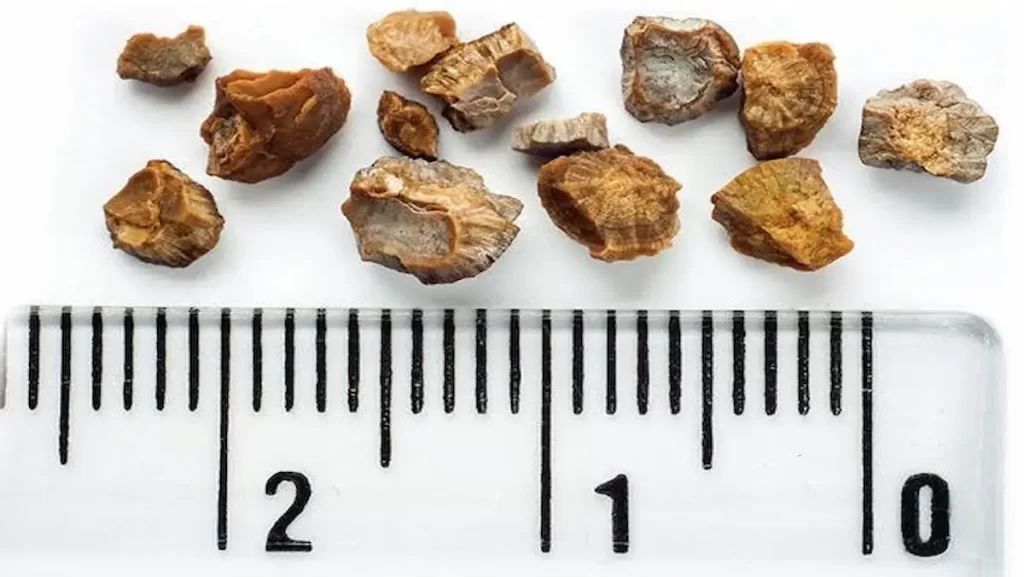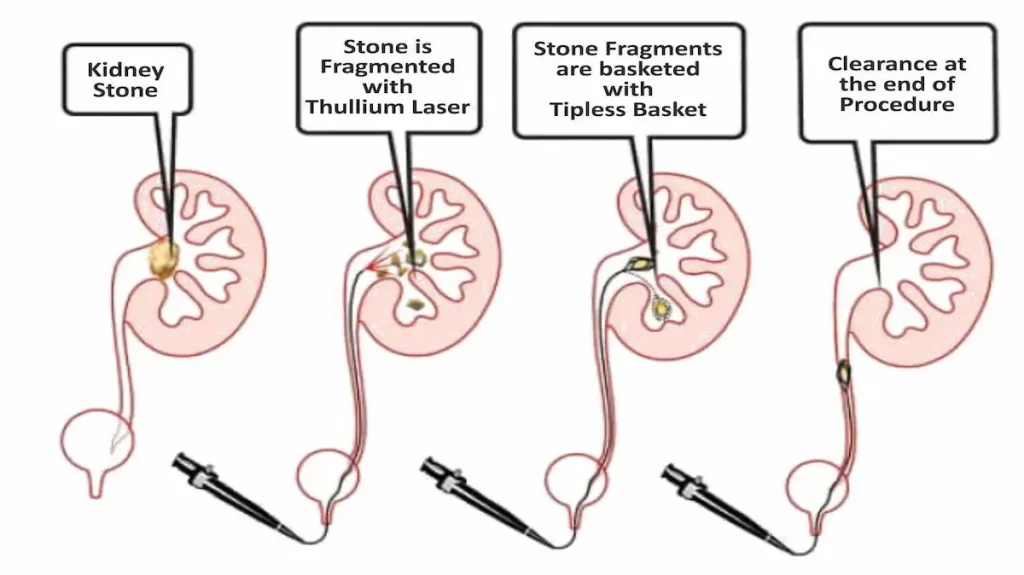Kidney Stones are hard mineral deposits that are formed inside your kidneys. They cause severe excruciating pain when passing through the urinary tract. Urinary calculi (Kidney stones) are more common in men compared to women. They usually occur more frequently between 30 and 40 years. Once you have had one stone in the kidney, you are 50% prone to get another within the next 10 years.
6 Tips on How to Prevent Kidney Stones
There is no standard way to prevent kidney stones, especially if you have a family history of the condition. A major tip on how to prevent kidney stones is the combination of a diet and lifestyle changes including some medications may help you reduce the risk.
- Drinking plenty of water and staying hydrated is the best way to prevent kidney stones. If you drink less water, the output of your urine will be low. Low urine output means less likely to dissolve a urine salt that causes stones and your urine is more concentrated.
- Intaking lemonade and orange juice are the best options. They contain citrate which can prevent forming the kidney stone.
- Try to drink about eight glasses of fluids on a daily basis which is sufficient to pass 2 litres of urine. You will require additional fluids If you sweat a lot or exercise, and if you have a family history of cystine stone.
- Eat foods that are rich in calcium. A low-calcium diet may increase the risk of kidney stones and give rise to osteoporosis. Low-fat milk, low-fat yogurt, and low-fat cheese are all calcium-rich foods.
- The risk of calcium kidney stones increases if you are on a high-salt diet. High salts can prevent absorbing calcium from the urine to the blood. This can cause high calcium in urine, leading to stone formation. So, you should intake a low-salt diet to reduce the level of calcium in the urine.
- Eat fewer oxalate-rich foods, which is considered a natural compound found in foods to bind with calcium in the urine to form kidney stones. Limiting oxalate-rich foods prevents the stone from foods. Consume high oxalate foods like spinach, coffee, chocolate, beets, rhubarb, peanut, and wheat bran.
- Consume fewer animal proteins as they are acidic and may increase urine acid. High urine acid can cause both calcium oxalate and uric acid kidney stones. Avoid poultry, beef, pork, and fish.

Check out the video of Dr. Suresh Sankara Subbaiyan, Sr. Consultant Nephrologist, about kidney-related problems and tips on how to prevent kidney stones. Also, check out the top Nephrologists in Chennai.
Kidney Stone Treatment
Retrograde Intrarenal Surgery (RIRS) is an endoscopic surgery which is performed to remove renal stones. This procedure is done using a flexible ureteroscope, that is placed through the urethra (the urinary opening) into the bladder, and then through the ureter into the kidney (intrarenal area).
Through this device, a Laser Fibre (Thulium laser) is used to treat the stones. Advanced treatments are available for kidney cancer, which can be effectively treated if detected at an early stage.
How Kidney Stones are Treated with RIRS?
The ureteroscope has a small camera attached at its end to inspect the kidney stones. A monitor screen present in the surgery room displays the entire anatomy of the patient’s kidney which is captured by the ureteroscope and gives you a clear picture of how to prevent kidney stones.
Through laser probes or an ultrasound wave, the stones are crushed into fine powder or pieces. These fine pieces can easily pass through the urination process.
What are the benefits of RIRS over PCNL (KeyHole Surgery)?
RIRS is absolutely less invasive than older techniques such as PCNL, laparoscopic or open surgery as it can be completely scarless. Because as we enter the kidney passing through the normal urinary tract, there is no need to make any incisions or cuts on skin or holes into the kidney (as in PCNL), as this is followed on how to prevent kidney stones.
Moreover, there is a lesser chance of severe bleeding, the stay in the kidney hospital is very short (day-care surgery in most cases), and there is a shorter period of recovery where patients can very soon return to the normal routine.
What is the use of a High-Power Laser in RIRS?
The best result on how to prevent kidney stones for patients can be achieved by using the High-power laser. Stone clearance in patients with kidney stones would range up to 4 cm (staghorn stones) and is made possible only with a high-power Thulium laser.
Is a Stent Essential to be Placed after RIRS? Is it a Permanent Stent?
Yes, like other kidney stone surgery, a double J stent is placed in the ureter in most cases, especially in RIRS. The purpose of Double J stent keeps the ureter open as the laser fragments of stone are washed out after any intervention during the decrease of the risk of ureteric stricture formation.
No, Double J stent is kept temporarily for 2 to 4 weeks, and later removed through the urethra endoscopically as a short procedure and the patient can go home the same day after getting it removed.

Can RIRS Treat Other Diseases Apart from Kidney Stones?
Ureteric and collecting system tumors (for both diagnosis and treatment).
RIRS is the future of stone surgery to make you understand how to prevent kidney stones. It does require a reasonable measure of experience to master the technique of RIRS but it is tremendously beneficial to the patient.
At VS Hospitals, we are equipped with state-of-the-art technology and a highly advanced Thulium Laser machine to treat several types of complicated issues related to kidney stones.
Risk Factors for Kidney Stones
“Kidney stones” is a term that covers various kinds of little, strong gems. They can have various causes and different food guilty parties. Some are connected with kidney contamination. Others structure since you have a lot of specific minerals in your framework.
Diagnosis
If you have severe pain that could be caused by kidney stones, your GP should refer you to hospital for an urgent scan:
- adults should be offered a CT scan
- pregnant women should be offered an ultrasound scan
Read also What should cancer patients do at this time of pandemic – COVID 19.
